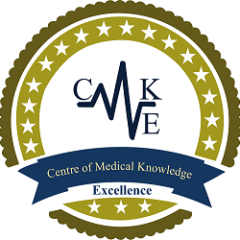September is PCOS awareness month. Polycystic Ovary Syndrome (PCOS) also known as Stein-Leventhal Syndrome is the most common hormonal disorder among women of reproductive age. PCOS symptoms include irregular menstrual cycles, excessive body hair and polycystic ovaries. PCOS causes small, pearl-sized cyst clusters in the ovaries. The cysts are fluid-filled and contain immature eggs. Women with PCOS produce slightly more amounts of male hormones known as androgens. The cause of PCOS is unknown. PCOS is a syndrome disease and is a collection of signs and symptoms.Post menopausal women can also suffer from PCOS.
SYMPTOMS:
PCOS is caused by an imbalance in the hormones (chemical messengers) in your brain and your ovaries. PCOS usually happens when a hormone called LH (from the pituitary gland) or levels of insulin (from the pancreas) are too high, which then causes the ovaries to make extra amounts of testosterone. All women make testosterone, but in PCOS, ovaries make a little bit more testosterone than required. In PCOS LH levels are often high when the menstrual cycle starts. The levels of LH are also higher than FSH levels. Because the LH levels are already quite high, there is no LH surge. Without this LH surge, ovulation does not occur, and periods are irregular.
The symptoms include:
- Infertility
- Excess or unwanted body or facial hair growth
- Thinning hair on the scalp
- Weight problems, often including weight gain around the waist
- Irregular or missing periods
- Patches of dark skin on the back of your neck and other areas, called acanthosis nigricans
70% of women with PCOS are still undiagnosed. Hence awareness is key factor for the syndrome. PCOS treatment starts with proper diagnosis. Treatment is then chosen based on every individual’s symptom, age and future pregnancy plans. Anti-Müllerian hormone (AMH) is increased in PCOS, and may become part of its diagnostic criteria
- Birth control pills to regulate menstruation
- Insulin-sensitizing medications
- Ovulation induction to treat infertility
- Androgen-blocking medications
- Topical anti-hair-growth medications
- Other excess hair treatments
The best treatment for PCOS is a healthy diet and healthy lifestyle. Increasing your daily activity and a regular exercise regime reduces further complications. Vitamin D deficiency may play an important role in the metabolic syndrome. Myo-inositol supplementation, however, appears to be effective in improving several of the hormonal disturbances of PCOS. Early diagnosis and treatment reduces the risk of some of the other risks, such as type 2 diabetes and heart disease. The World Health Organization estimates that it affects 116 million women worldwide as of 2010. High-fiber carbohydrates include whole-grain breads and cereals, whole-wheat pasta, bulgur wheat, barley, brown rice, and beans are some healthy foods to help combat the complications of the syndrome.
